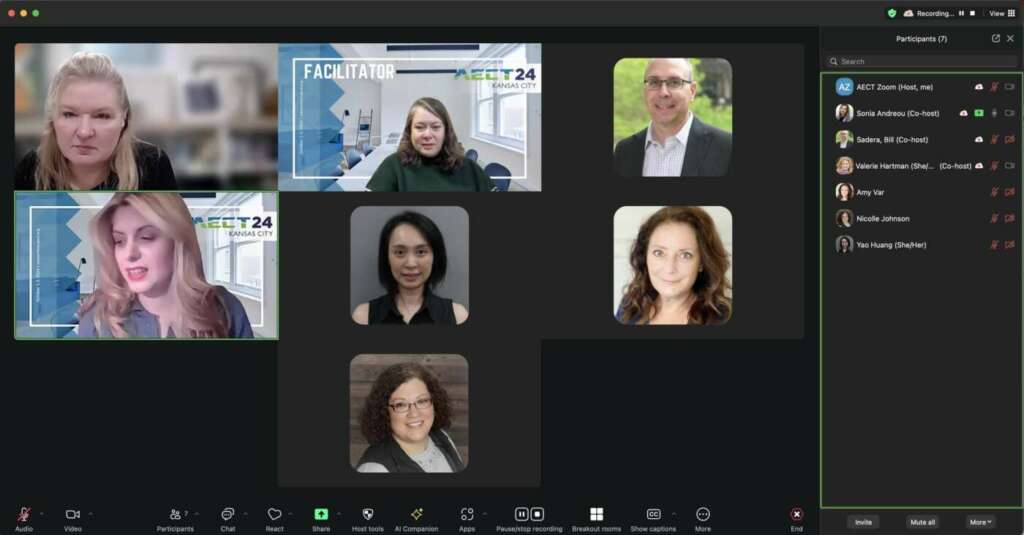We are thrilled to have presented the outcomes of our Lionfish E+ Project [2023 – 2024, KA210-SCH-2023-004] at the AECT 2024 International Convention in Kansas City, Missouri, USA. The paper is titled: Learning experience design for navigating climate action
Paper Abstract: This investigation aims to present a learning experience design tailored to students aged 12-16, centered around the pressing issue of the ‘Lionfish Invasion’.
The spread of this species threatens the very existence of marine ecosystems not only of the Atlantic Ocean, but most recently of the Mediterranean Sea. The work aims to engage, immerse and empower the students in topics related to climate change, thus fostering empathy and action taking. The learning experience design involves viewing a 360VR film describing the life of a fisherman and the difficulties he is facing as a result of the appearance of the Lionfish, followed by the enactment of STEAM and making activities around the use of Lego Mindstorms EV3, Micro:bits and 3D pens (Ioannou & Gravel, 2024), and the use of Visual Thinking Tools that contribute to developing Systems Thinking (Yiatros et al., 2023). The work presented herein describes the study we conducted with 83 students, aged between 12 – 16, coming from four different middle/highschools in a mediterranean country.

The study gathered qualitative data by engaging students in a class-wide discussion about their overall experience, at the end of the intervention i.e., one class-wide discussion per school. All students (n=83) had the opportunity to express their views during the discussion. Private interviews with their instructors (n=6) were conducted for triangulation of findings.
Through student class-wide discussions and teacher interviews, we aimed to uncover critical insights into the overall experience as well as about the different elements of the activity namely, the 360VR film, the STEAM activities, and the Visual Thinking Tools (Canvas).
The findings of this study offer meaningful perspectives into the effectiveness of this learning experience, towards the enhancement of students’ understanding, empathy, and motivation towards action taking in issues related to climate change. Students discussed how the combination of activities, from the 360VR film to STEAM Visual Thinking Tools (Canvas) intricate concepts related to climate change and ecosystem dynamics. Instructors’ feedback provided further insights into how the effectiveness of our intervention in facilitating student learning and engagement. The significance of fostering soft skills such as team collaboration, problem-solving, and effective communication of ideas was also argued by the instructors as a benefit from the experience.

